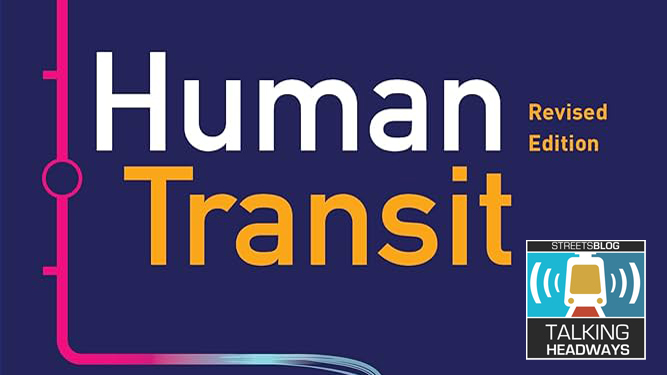This week we’re joined once again by Jarrett Walker to talk about the release of the revised edition of his influential book Human Transit.
We chat about Ursula Le Guin, expanding access to opportunity, how to think about transit riders, the free transit movement and thoughts on anger as a response to change.
Scroll down for a partial excerpt of our conversation — or click here for a full, unedited AI-generated transcript. Here's the show:
Jeff Wood: How much anger have you absorbed over the last 10 to 13 years or so from folks who are upset about changes or things like that?
Jarrett Walker: So the challenge of that question is that if I tell you that I have in fact absorbed it, I would be confessing to a fairly serious mental health problem.
No one can absorb the amount of anger that comes at you when you do this work. And if I were to tell you that I hadn’t, I would be making myself sound like I’m heartless and don’t care about the impacts of the plans that we have, which isn’t true either. We understand from long experience that people are used to things being as they are and their first reaction is to be angry when confronted with the possibility that things will change.
It’s easy to ridicule the NIMBY. It’s easy to ridicule the opponent of change. For that reason I am always noticing all the ways that I am doing this, too. And I think we should all call ourselves out on all the ways that we are doing this — because I bet if you think about it now and then you encounter things that you were used to that you are changing that you think shouldn’t have changed, it irritates you.
And that’s NIMBYism, right? That’s the heart of that whole sensation. A typical interaction is — a client comes to us, you know, hires us, wants a network design, they want more ridership, they want their network to be more relevant.
And one of the early questions is basically, "How much anger are you prepared to sit through?" Because the level of anger will be proportional to how much we are changing. It won’t be proportional to the quality of the plan. It’ll be proportional to how much the plan changes things — because the more we change things [that] people are used to, the angrier people will be.
So I always have to take every client through this process — not just at the staff level but also at the level of the elected officials or policy makers. You know, when we did the Houston redesign that went in in 2015, the board hearings for that redesign lasted night after night after night — several evenings until midnight. Hundreds of people spoke overwhelmingly opposed to the plan. Hundreds of people stood up over and over and told this board that if we implement this plan, it will be in some way destroying their lives.
Many of those people were overdramatizing, but a few of those people were right. The network plan did change things in a very dramatic way to make the network more relevant. And yes, that was gonna be bad for some people who were used to the network as it was.
There’s no way to avoid that in the context of the very austere transit operations budgets that we’re working with in the United States. It is somewhat different in Europe. So, you know, I respect the anger, but I also anticipate the anger. We plan for the anger from the beginning and we are thinking from the beginning about how do we tell a story that makes it worth sitting through some anger to get to a good place.






